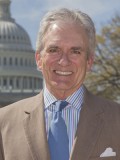
 By BJC Executive Director J. Brent Walker
By BJC Executive Director J. Brent Walker
Article VI of the U.S. Constitution — banning any religious test for public office — is an important, but oft-overlooked, protection for religious liberty.
We usually focus on the First Amendment’s two Religion Clauses, and properly so. The Religion Clauses protect religious liberty by requiring the separation of church and state; the clause banning a religious test works hand in glove with the First Amendment by addressing the relationship between religion and politics.
The “no religious test” clause represented a radical departure from the legal requirements in most of the colonies. For example, in Pennsylvania one had to “believe in one God, the creator and governor of the Universe … and … acknowledge the Scriptures of the Old and New Testament to be given by Divine inspiration.” In Delaware, government leaders were obliged to “profess faith in God the Father and in Jesus Christ his only son and in the Holy Ghost.” In Georgia and New Hampshire, one simply had to “be of the Protestant religion.” The wise Founders (most of them, anyway, because a few favored imposing religious requirements) said “no” to conditioning citizens’ participation in the political process on their willingness to sign on the dotted line of a theological confession.
This provision in Article VI ensures religious liberty in several ways. It helps us properly understand the Establishment Clause. It powerfully reinforces the critique of the notion that America is a “Christian nation,” legally and constitutionally. If our Founders had wanted to set up a Christian nation — or even to gently privilege Christianity — they would have required, not forbidden, a religious test demanding a profession of some brand of Christianity in doctrine or denominational affiliation. Article VI also dovetails with the Free Exercise Clause, as well as notions of fundamental fairness in our political culture. We should encourage participation by all citizens — representing the many precincts of our religiously plural landscape, including those who are religiously unaffiliated (nearly a quarter of the current population).
Indeed, the fruit of this aspiration is becoming apparent. The presidential and vice presidential nominees of the two major parties in 2012, for the first time in our nation’s history, did not include a white Anglo-Saxon Protestant. We had an African-American Protestant, a Mormon and two Catholics. Also telling is the fact that no Protestants are currently serving on the U.S. Supreme Court. Rather, we have five Catholic and three Jewish justices. In Congress, we have elected two Muslims, two Buddhists, one Hindu, and at least one who admits to being religiously unaffiliated.
To be sure, the test clause technically only bans legal requirements for qualifying for office and constrains only government. But we should make every effort, as good citizens, to live up to the spirit along with the letter of Article VI. That is to say, a candidate’s or government leader’s religion is a part of who he or she is and needs not be ignored, but we should never impose a religious litmus test in deciding who would best lead our country in public office. And, if a candidate’s religion is discussed, we must always ask the follow-up “So what?” question. What difference will religious belief and practices make in the candidate’s ability to serve in public office? We need a tight fit between talk about religion and issues that matter in public service. Otherwise, it’s just theological voyeurism at best or an invitation to play the religion card for political advantage at worst.
It seems to me we are doing pretty well in how we are starting to think about religion and politics overall. Of course, we still have a lot of work to do. In this political season, the fitness of a Muslim to be president has been gainsaid by a candidate who embraces Seventh-day Adventism and others have woven God-talk into stump speeches to a degree that suggests pandering to a certain constituency. Many still think we are a “Christian nation” in law, not just demographically. And, Islamophobia and other forms of religious bigotry abound.
But voices resounded across the political spectrum decrying the unfortunate demeaning of Islam in the presidential primaries, and increasingly we view with jaundiced eyes the abuse of religious rhetoric for political advantage. The fact that an overwhelmingly Christian majority has been willing to elect leaders who reflect some of our astonishing religious diversity suggests that we are making considerable progress in embracing the principle behind the “no religious test” clause in Article VI: the most religious candidate — even if he or she can be identified — has not been and is not now necessarily the best qualified person to lead our secular government.
From the June 2016 edition of Report from the Capital. Click here to view the issue as a PDF document.




